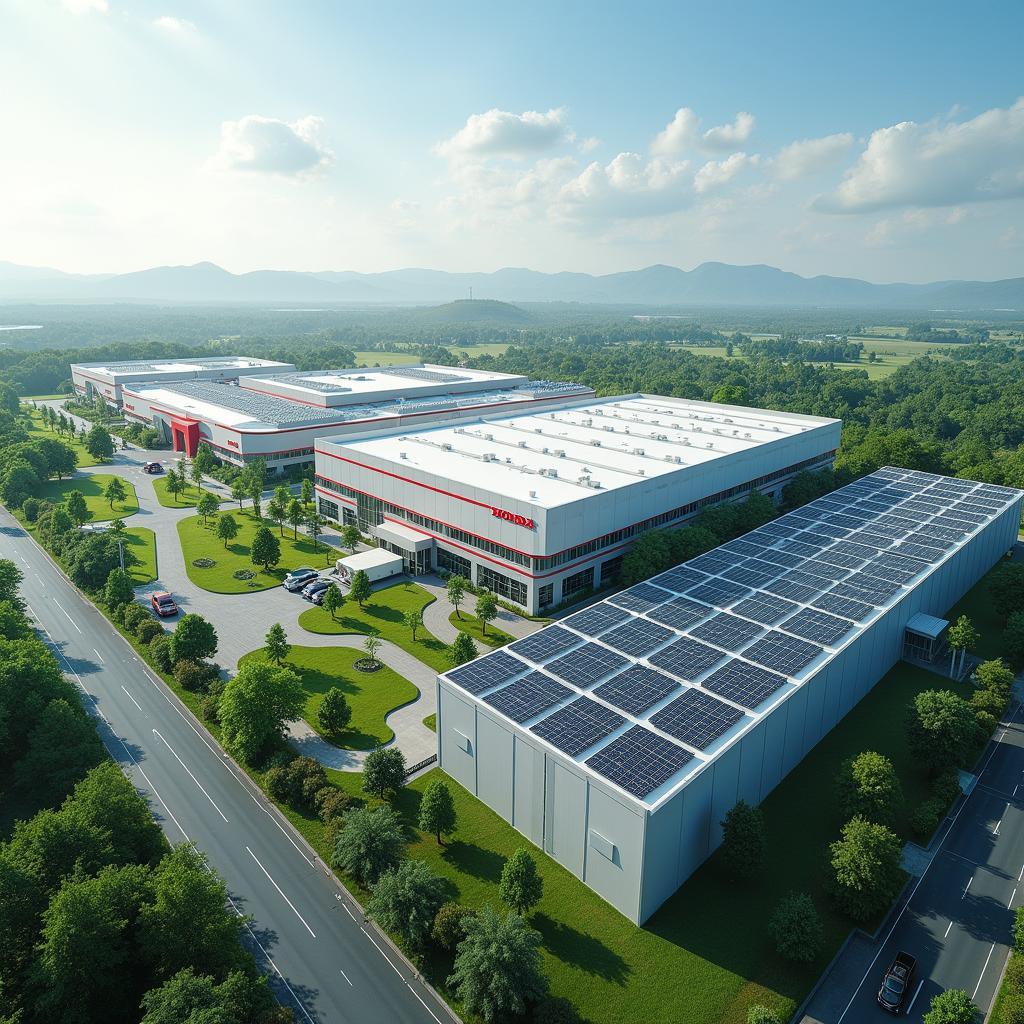Honda’s commitment to minimizing its environmental impact is reflected in its comprehensive pollution control policy, encompassing everything from vehicle design and manufacturing to car service practices. Understanding this policy is crucial for both Honda owners and service professionals seeking to maintain these vehicles responsibly and contribute to a cleaner environment.
Understanding Honda’s Commitment to Environmental Protection
Honda’s environmental initiatives go beyond simply meeting regulatory requirements. The company actively strives to reduce emissions, improve fuel efficiency, and develop sustainable technologies. This commitment is evident in their car service guidelines, which emphasize the use of approved parts and fluids designed to minimize environmental impact. Proper Honda car service plays a vital role in upholding these standards. Are you aware of how your local Honda service center contributes to this effort?
Emissions Reduction Technologies in Honda Vehicles
Honda incorporates a range of technologies to reduce vehicle emissions, including advanced engine designs, efficient catalytic converters, and sophisticated fuel injection systems. These systems require specialized service procedures and genuine Honda parts to ensure optimal performance and pollution control. Failing to adhere to these specific service guidelines can compromise the effectiveness of these emission control systems.
The Importance of Genuine Honda Parts and Fluids
Using genuine Honda parts and fluids during car service is essential for maintaining the vehicle’s emissions performance and adhering to Honda’s pollution control policy. These parts and fluids are specifically engineered to work in harmony with the vehicle’s complex systems. Counterfeit or aftermarket parts may seem like a cost-saving option, but they can negatively impact performance, fuel efficiency, and emissions control. What are the long-term costs of using non-genuine parts?
Honda’s Approach to Sustainable Manufacturing
Honda’s commitment to environmental responsibility extends beyond its vehicles to its manufacturing processes. The company focuses on minimizing waste, reducing water usage, and utilizing renewable energy sources in its factories. This holistic approach ensures that the entire lifecycle of a Honda vehicle, from production to service, minimizes its environmental footprint.
How Honda Car Service Impacts Pollution Control
Regular Honda car service is crucial for maintaining the effectiveness of pollution control systems. This includes routine maintenance tasks such as oil changes, air filter replacements, and spark plug replacements. These seemingly simple procedures are critical for ensuring optimal engine performance and minimizing emissions. Ignoring these regular service intervals can lead to increased emissions and potentially damage the vehicle’s emission control components.
Understanding Your Role in Maintaining a Green Honda
As a Honda owner, you play a key role in upholding Honda’s pollution control policy. By adhering to the recommended service schedule and using genuine Honda parts and fluids, you contribute to minimizing your vehicle’s environmental impact. Choosing a certified Honda service center ensures that your vehicle receives the specialized care it needs to operate efficiently and cleanly. What steps can you take to ensure your Honda is serviced in an environmentally responsible manner?
Conclusion
Honda’s car service pollution control policy reflects a deep commitment to environmental stewardship. Understanding and adhering to this policy, through regular maintenance and the use of genuine parts, is crucial for every Honda owner. By working together, we can ensure that these vehicles continue to contribute to a cleaner and more sustainable future.
FAQs
- What type of oil should I use for my Honda?
- How often should I change my Honda’s air filter?
- What are the signs of a faulty catalytic converter?
- Why is it important to use genuine Honda parts?
- How can I find a certified Honda service center?
- What is Honda’s environmental policy?
- How does regular maintenance contribute to pollution control?
Need assistance? Contact us via WhatsApp: +1(641)206-8880, Email: [email protected]. We have a 24/7 customer support team.


